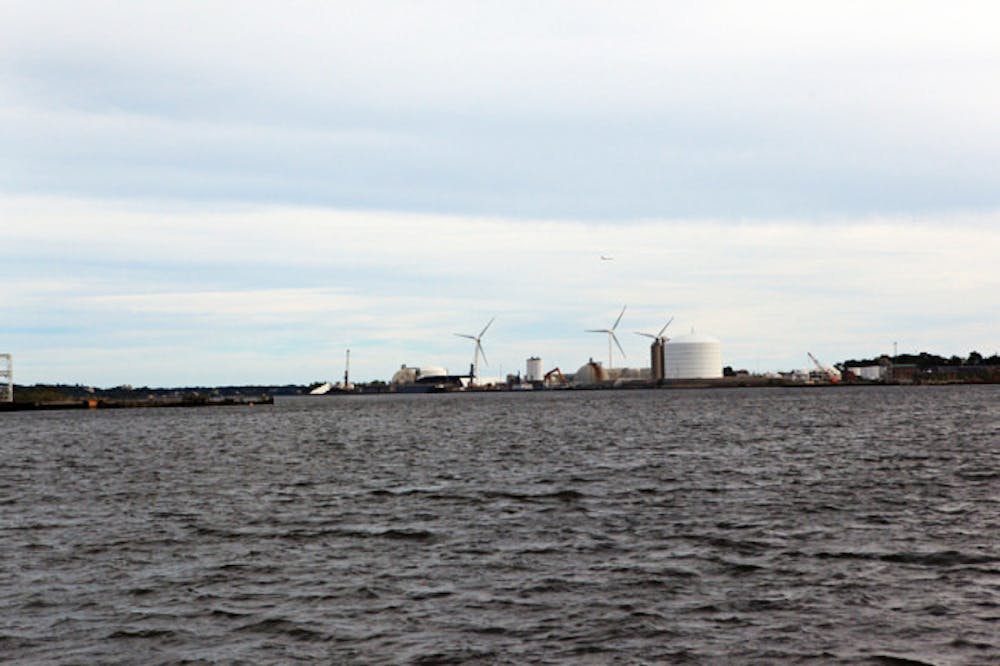Jeff Grybowski ’93, chief executive officer of Deepwater Wind, a wind turbine company tasked with building America’s first-ever offshore wind farm off the coast of Block Island, discussed progress on the project at the Taubman Center for American Politics and Policy Thursday.
The coast of Block Island provides a “world-class wind resource … really close to a huge population center that uses a lot of electricity,” Grybowski said, adding that the energy sources that currently power the area, such as the Pilgrim Nuclear Power Station, are set to expire in the next few years. The Block Island wind farm is expected to be operational by early 2016, he said.
There is more potential wind energy off the coast of Block Island — a small fraction of which will be captured by the turbines being constructed — than the quantities produced by a traditional power plant, Grybowski said. The wind farm will be able to supply about 90 percent of the island’s energy needs, he said.
The turbines will perform at full capacity about half of the time, Grybowski said, noting that renewable energy sources such as wind farms and solar panels cannot currently meet all of the world’s energy needs. Other fuel sources such as coal, nuclear power and natural gas — which do not come and go like sunlight and wind —, are still important, he said. But tapping renewable resources can nonetheless produce a lot of clean energy even without fully replacing so-called base-load fuels, he added.
The Block Island wind farm follows two unfinished projects in Cape Cod and Plymouth, spearheaded by other companies, to harvest offshore energy. Grybowski attributed Deepwater Wind’s comparative success to the project’s relatively small scale.
The project faces opposition from various groups that cite environmental issues, worker safety, aesthetic concerns and poor project planning as reasons to stop the project.
Grybowski addressed these concerns by emphasizing that the wind farm will benefit local communities, explaining that 75 percent of workers are from Rhode Island. Before beginning the project, Deepwater Wind negotiated with concerned parties, such as fishermen, to facilitate the construction process, he said.
In response to charges of poor project planning, Grybowski said the “inexperience” of contractors and vessels posed “a learning curve,” but the company minimized setbacks by working to identify the conflicts and address them before they became problems. Though “unknown risks are project killers … we weren’t going into the project blind,” he said. Even “big, expensive risks can be dealt with” if they are anticipated, he added.
“This project is very necessary,” said Cherise Pabia ’18, who attended the talk, adding that she supports wind farms because “we need to transfer to renewables” in general.
Other attendees raised concerns about wind turbines’ longevity, especially in storms. Grybowski responded that one of the main benefits of wind farms is their “low maintenance,” adding that the Block Island farm will be built to weather a “1,000-year storm.”





